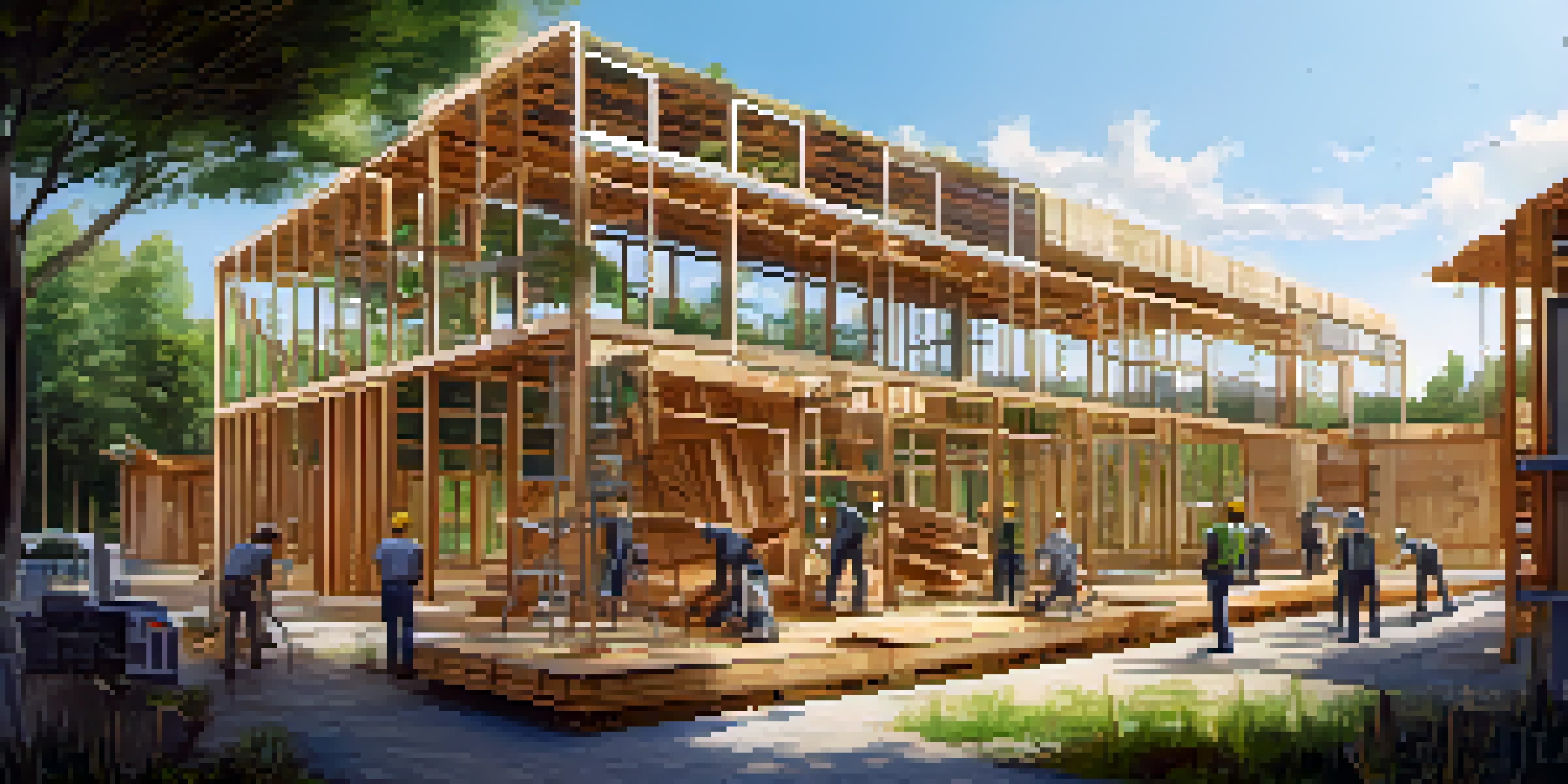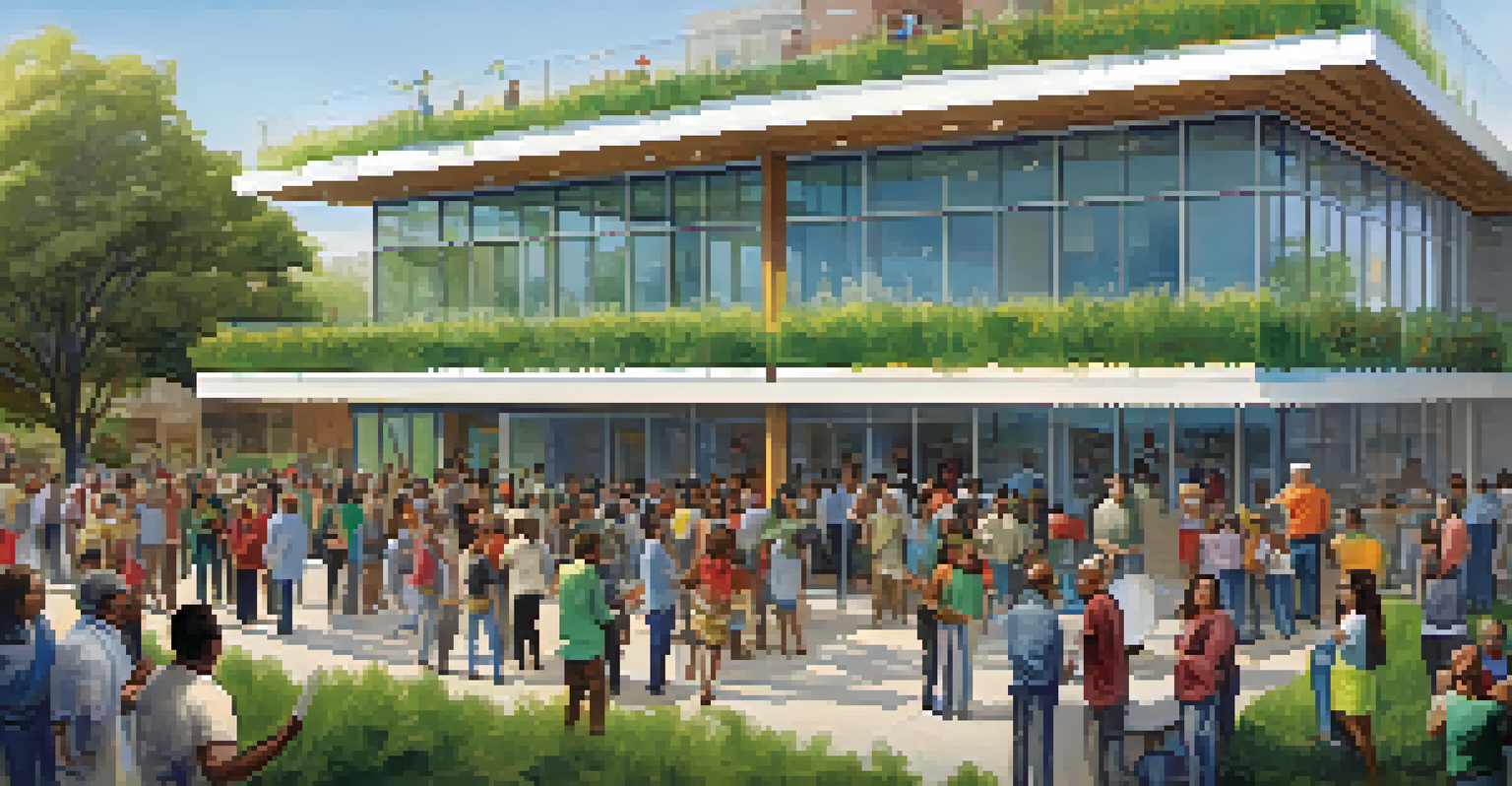How to Evaluate a Contractor's Commitment to Sustainability

Understanding Sustainability in Construction
Sustainability in construction refers to practices that minimize environmental impact while promoting social responsibility. It encompasses everything from using eco-friendly materials to ensuring energy efficiency in buildings. This holistic approach not only benefits the planet but also enhances the quality of life for occupants.
The greatest threat to our planet is the belief that someone else will save it.
When evaluating contractors, it's essential to understand their definition of sustainability. Some may focus solely on materials, while others consider the entire lifecycle of a project. Knowing what sustainability means to them will help you gauge their commitment to it.
By grasping the core principles of sustainability, you'll be better equipped to ask the right questions and assess potential contractors more effectively. This foundational knowledge sets the stage for a deeper evaluation of their practices.
Researching Their Sustainability Credentials
Start by examining a contractor's certifications and credentials related to sustainability. Look for recognized certifications like LEED (Leadership in Energy and Environmental Design) or BREEAM (Building Research Establishment Environmental Assessment Method). These credentials indicate a commitment to sustainable building practices.

In addition to formal certifications, consider any awards or recognition the contractor has received for their sustainable projects. This can provide insight into their track record and dedication to environmentally friendly practices.
Don't hesitate to ask contractors directly about their sustainability credentials. A reputable contractor should be proud to share their achievements and explain how they implement sustainable practices in their projects.
Evaluating Their Use of Sustainable Materials
One of the most visible aspects of a contractor's commitment to sustainability is their choice of materials. Sustainable materials are often sourced responsibly, have a lower environmental impact, and can improve energy efficiency. Ask potential contractors about the types of materials they use and their sourcing practices.
Sustainability is no longer about doing less harm. It’s about doing more good.
For example, reclaimed wood or recycled steel are excellent choices that reduce waste and lower carbon footprints. Additionally, inquire whether they use non-toxic paints or finishes that minimize harmful emissions inside the building.
By understanding the materials a contractor employs, you can assess how seriously they take their commitment to sustainability. This evaluation can also help you avoid contractors who prioritize cost over eco-friendliness.
Assessing Energy Efficiency Practices
Energy efficiency is a crucial component of sustainable construction. A contractor should have a clear plan for maximizing energy efficiency in their projects, from design to construction. This includes utilizing energy-efficient appliances, insulation, and lighting solutions.
Ask contractors about their approach to energy modeling and analysis during the planning phase. This process helps predict energy consumption and optimize design choices to reduce energy use.
A contractor's commitment to energy efficiency not only contributes to sustainability but also leads to long-term cost savings for building owners. Make sure to prioritize contractors who emphasize energy-efficient practices in their work.
Inquiring About Waste Management Strategies
Waste management is another critical area where contractors can demonstrate their commitment to sustainability. A good contractor should have a plan for reducing, reusing, and recycling materials throughout the construction process. This not only minimizes landfill waste but also can reduce project costs.
Ask potential contractors about their waste management strategies. Do they have partnerships with recycling facilities? How do they track and report waste generated on-site? These details can reveal the contractor's genuine commitment to sustainability.
Effective waste management can significantly impact the overall sustainability of a project. By prioritizing contractors who have solid waste management plans, you'll help ensure that your project aligns with eco-friendly practices.
Examining Their Impact on the Community
Sustainability isn't just about the environment; it also involves social responsibility and community impact. When evaluating contractors, consider how they engage with and contribute to the communities in which they work. A contractor committed to sustainability will often prioritize local partnerships and community involvement.
Inquire about their initiatives to support local businesses or provide job training for residents. This kind of engagement not only fosters goodwill but also strengthens the community’s economy and resilience.
By selecting contractors who emphasize community involvement, you can ensure that your project has a positive ripple effect, contributing to a sustainable and thriving local environment.
Seeking Client Testimonials and Case Studies
Client testimonials and case studies can offer valuable insight into a contractor's commitment to sustainability. Reach out to previous clients to ask about their experiences and whether the contractor delivered on their sustainability promises. Positive feedback can be a strong indicator of reliability and dedication.
Additionally, case studies showcasing past projects can provide concrete evidence of the contractor's successful sustainable practices. Look for projects that highlight innovative solutions or significant environmental benefits.

By gathering testimonials and reviewing case studies, you can better understand a contractor's capabilities and commitment to sustainability, helping you make an informed decision.
Trusting Your Instincts and Building Relationships
Lastly, trust your instincts when evaluating a contractor's commitment to sustainability. Building a good relationship with your contractor is essential, as open communication fosters collaboration and ensures that your sustainability goals are prioritized.
During initial meetings, pay attention to how they respond to your questions about sustainability. Are they knowledgeable and passionate, or do they seem dismissive? A genuine commitment is often reflected in their enthusiasm and willingness to engage.
By forming a trusting partnership with a contractor who shares your sustainability values, you can work together to create a project that not only meets your goals but also contributes positively to the environment and community.